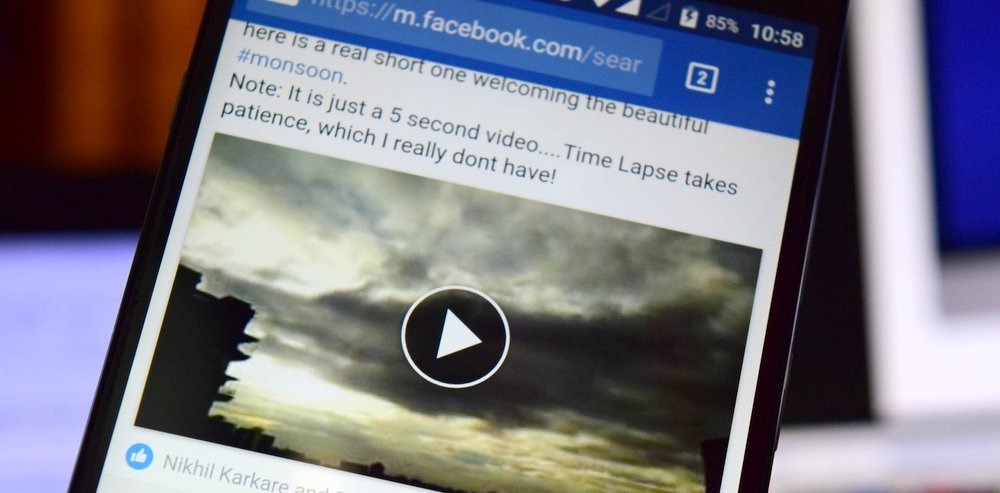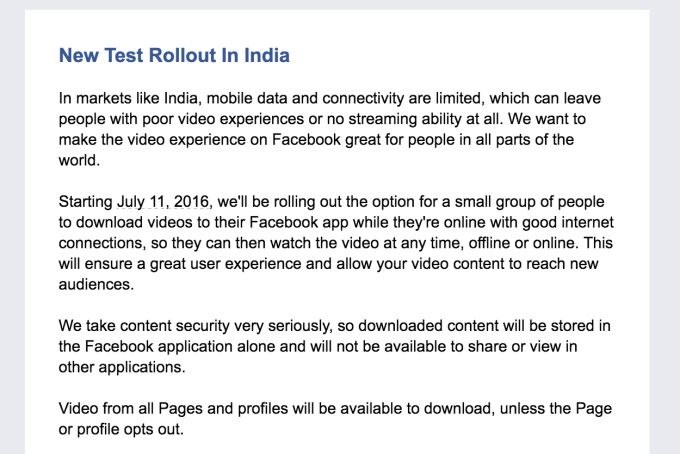Facebook Imitates Youtube; Introduces Offline Video Downloads!

Videos are not the next big thing; they are already big. In 2013, we reported that 54 million Indians watched videos online, and 86% visited social media portals. And 55% of all videos were watched on Google’s platform, namely Youtube whereas Facebook videos had little more than 15% share, but their market reach was growing at an astounding pace of 182%, compared to Google’s growth of 24%.
Video views on Facebook is expanding like a forest fire, and in October last year, they reported massive 8 billion daily views, globally. In January, they said that close to 100 million hours of videos are being watched on their platform, every day (not views).
Comparably, Youtube witnessed 500 million hours of video views in a single day in October, 2015, all over the world, which has now increased to 650 millions hours in 2016.
In order to bridge this gap, especially in a video hungry country like India, where Internet speed is still a major concern, Facebook has announced a new, sizzling feature which will surely grab eyeballs (pun included): Offline downloading of videos.
This marks a new frontier within the battle between Facebook and Youtube, as the latter had introduced this feature way back in 2014. And Facebook is fast catching up.
How Will It Work?
Facebook has observed that due to slow Internet connection in India, users often fail to stream videos while scrolling their timeline, thereby missing the fun which Facebook is trying so hard to encapsulate.
Hence, from now on, users can download the videos when accessing good speed like a WiFi or faster 3G/4G speed, and then view the video at leisure afterwards.
This is a direct imitation of Youtube’s offline video download feature.
Facebook has confirmed this development, as a spokesperson said, “We’ve heard feedback that in markets like India, mobile data and internet connectivity is limited and many people struggle with poor video experiences. So we’re testing an option for people to download videos to Facebook while they’re online on good internet connections, to view the video at anytime, online or offline, without using extra mobile data.”
In an email to Facebook Publishers, here is what they said:

But What About Piracy?
Excellent question indeed. To avoid privacy, the videos which are downloaded won’t actually download and saved in the phone’s internal memory. The downloaded videos would be accessible only via Facebook mobile app, which will prevent piracy as they can’t be saved externally.
Besides, the users can only download videos from public user profiles and public pages who have ‘allowed’ such downloading feature. Original content creators and publishers can block this downloading feature as well, if they want.
Another piracy check: Only those videos which have been originally uploaded on Facebook’s platform can be downloaded (if the publisher has approved it). Hence, non-Facebook videos, whose links are shared, are not downloadable.
With videos accounting for 42% share of daily traffic, globally, and with predictions of mobile videos garnering a lion’s share of 71% of all mobile traffic by end of 2016, Facebook has indeed played a masterstroke with this feature, especially in India.
Do you think that Facebook can beat Youtube in India? Do let us know by commenting right here!
